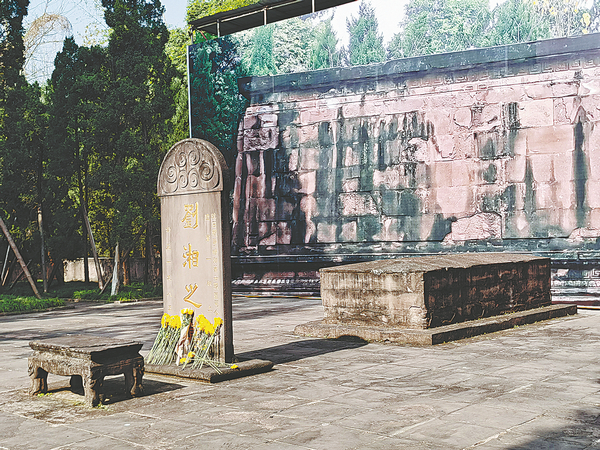A monument to heroes


According to the statistics of the then Kuomintang government, the number of Sichuan troops killed and wounded during the war was about one-fifth of the total number of casualties of the national anti-Japanese army.
Wang Xiaochun, an official with the Sichuan Provincial Archives Bureau, says that 3.4 million Sichuan soldiers left their province to fight in the War of Resistance Against Japanese Aggression, 646,000 of whom were killed, injured or classified as missing.
It was Liu Xiang, then governor of Sichuan, who led the first 300,000 Sichuan soldiers out of the province in October 1937 to fight against the Japanese invaders.
In January 1938, Liu Xiang died of illness in Wuhan, Hubei province. Sorting out his belongings, people found a hand-written note with words "Sad that he had to die before he gained victory, leaving great men of succeeding generations wetting sleeves with tears."
The words are from a time-honored poem by Du Fu (712-770).
Du moved to Chengdu in 759 to take refuge from a nearly eight-year war waged by two rebelling generals who had led to the decline of the Tang Dynasty (618-907).

































